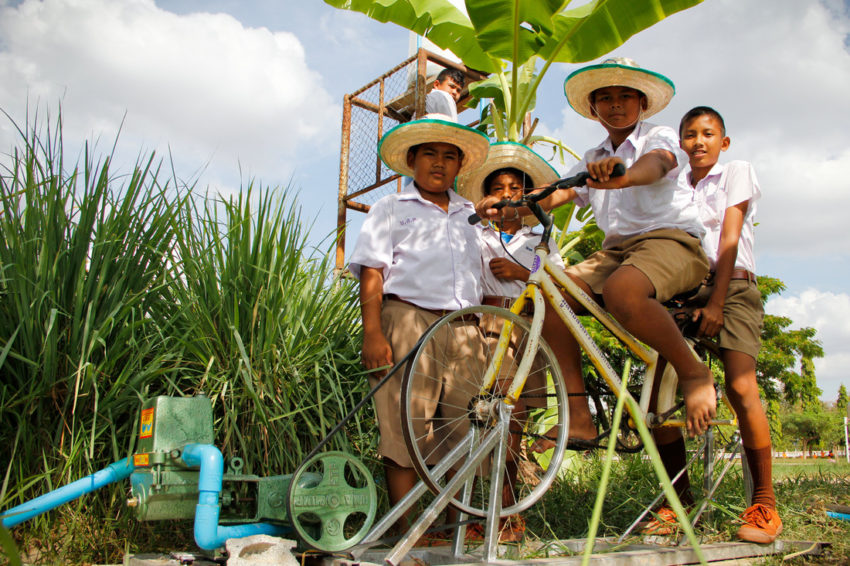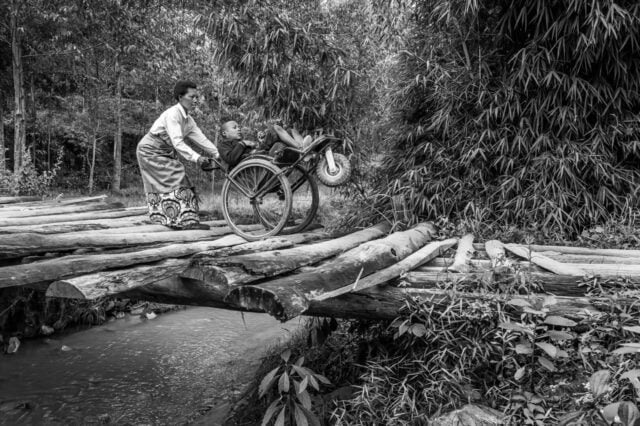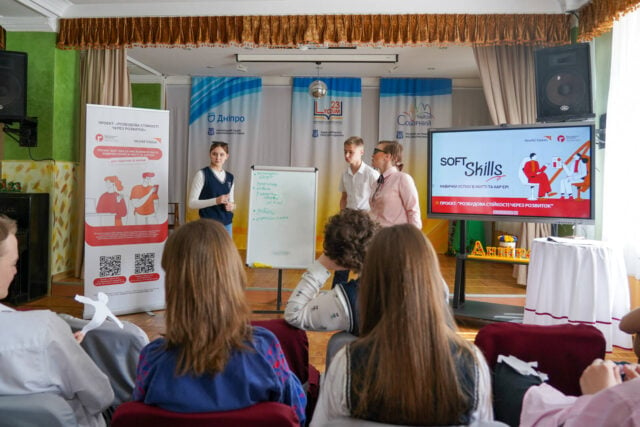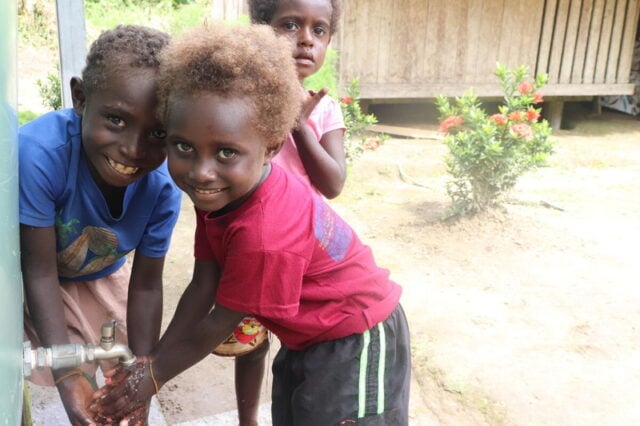Eager boys in straw hats gather around a bicycle, taking turns jumping onto the seat and pedaling madly. But the bike doesn’t budge an inch.
This is no ordinary bicycle, but a tool to propel these Thai students’ passion for a better future through agriculture. Each pedal rotation generates electricity, activating the pump that sends water to vegetables growing nearby. The vegetables will feed elementary, middle, and high school students — most growing up in impoverished families.
Eighty-five youth from Baan Sang Ko School nurture their own Garden of Eden, where fish jump in ponds, chickens and ducks lay eggs, and vegetables sprout from soil enriched with organic fertilizer. Maintaining this paradise is serious business. Even during weekends, holidays, and vacations, they tend to their farm with hearts set on learning and eyes focused on innovation.
For their inventiveness and dedication, Thailand’s Crown Prince Vajiralongkorn honored the youth with his prestigious Best Youth Agriculture Group award. This highly coveted recognition placed these young people in the national spotlight — and inspired them to discover even more innovative ways to expand their farm and their skills.
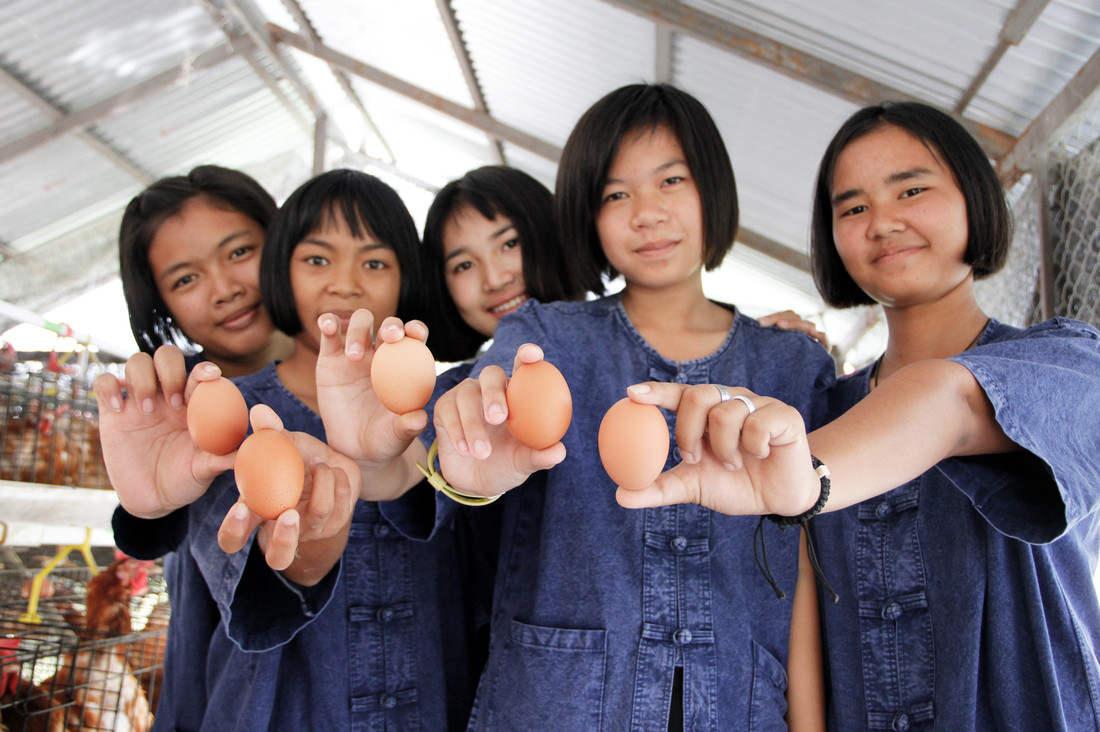
These expansive agricultural activities have their roots in a World Vision-funded school lunch program that supplied fresh produce for lunches. It wasn’t long before students and staff decided to test new agricultural opportunities. Staff members pursued additional funding, and soon the farm grew to include fowl, pigs, and mushrooms as well. The group also makes organic fertilizers for the gardens and a multi-purpose detergent to clean the school’s dishes and restrooms.
What began as an experiment is now a potential career path for many of the students, who are dreaming big. Chakkrit Tuchaiya, a ninth grader and president of the Youth Agriculture Group, says, “The agriculture profession provides sustenance for people all over the world. So I would like to continue this profession and make it forever a Thai heritage.”
For now, the young agrarians are intensely focused on overcoming any obstacles in their way. To cut costs, for example, youth and teachers recently discovered a solution right in front of them. Instead of purchasing food for the fish, they raised the chicken coops above the pond, allowing the fish to feed from the chicken manure.
In addition to providing food for their classmates, some of the vegetables, fish, eggs, and other harvests are sold for a profit, and some go home with the group members. Nothing is wasted.
Innovations like these are why the students garnered the royal award. Teachers at Baan Sang Ko School aim to equip the students to become a new generation of farmers who are proud to be part of growing the backbone of Thailand’s economy through agriculture. The award recognizes students’ efforts to engage in King Bhumibol’s Sufficiency Economy philosophy, which encourages Thai farmers to feed their families by harvesting their own produce.
World Vision and the school share a common goal in that we want the students to learn by practice and eventually become self-sufficient.—Bantom Kaewarsa, school director
School director Bantom Kaewarsa, who also won a royal award consulting the youth agriculture group, is thankful for World Vision’s continuing support for their farming efforts. “World Vision and the school share a common goal in that we want the students to learn by practice and eventually become self-sufficient,” Bantom says.
This is already happening as the young people take home what they are learning at the school farm. “I personally like agriculture,” says Sirivimol Kudthalaeng, a ninth grader. “It allows me to use what I learn to advise my parents, to ensure they correctly practice agriculture.”
Meanwhile, the students also learn other life skills, such as teamwork and money management.
As the farm expands, so do the creative opportunities. Last year a fish hatchery was added to give students hands-on learning in selecting fish eggs. Recently the school also succeeded in producing its own biogas, which it uses to boil water and cook lunch for students. And the young farmers run their own bank and cooperative at school.
In the near future, the school plans to market its products to the public under the Baan Sang Ko School brand. They already have adapted and are patenting a fish marinade recipe that is a Thai delicacy. Fish sauces and dips also are under consideration. Fisheries teacher Dr. Vichien Meebun says the possibilities are endless — and the students enthusiastically agree.
Chakkrit is so motivated to use his new skills that he plans to raise fish at home, too. “I will use the knowledge to generate supplementary income for my family,” he says, “and I’ll pass the knowledge on to others.”
Duangporn Choktippattana of World Vision’s staff in Thailand contributed to this article.
